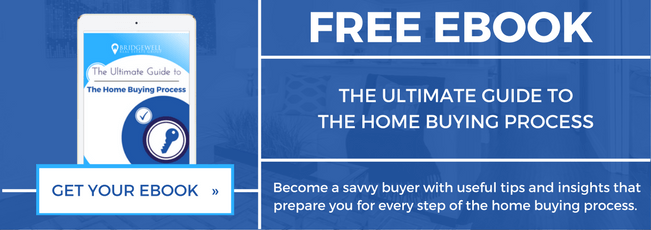Subject Free Offer:
Breaking Down the Subject Free Offer and How to Do it Safely
A subject free offer can be risky, especially when done negligently.When the market is hot, you’ll often see subject free offers as a way for buyers to remain more competitive and appeal to the seller. Typically, you are negotiating price, dates, and subjects – and since subjects give the buyer an option to be able to back out of the deal, in the seller’s mind the less subjects the better!
This blog goes through what a subject free offer is, what the risks of a subject free offer are, and what you can do to protect yourself if you choose to write subject free.
For everything you need to know about a subject free offer and how to do it safely (if you choose to!), keep reading!
What is a subject free offer?
A subject free offer is an offer that doesn’t have any subjects on it. (no way!? >.<) To understand this more clearly, the standard subjects on a contract are:
- Subject to financing
- Subject to inspection
- Subject to title search
- Subject to property disclosure statement
- Subject to insurance
- Subject to strata documents (if applicable)
Because the above subjects give the buyer an opportunity to back out during the subject removal period (typically 5-7 days long), a subject free offer is reducing the opportunities for a buyer by having no subjects listed and shows the seller that they are committed and have a lower chance of backing out.
In many situations, it means the due diligence has been done before the offer was written. For example, the buyer may have already read the strata documents, title & PDS and are satisfied; or they may be purchasing well within their means and have already run the property through their mortgage broker and chosen not to write with a financing subject. A subject free offer doesn’t necessarily mean that they don’t need financing, but rather, it means that they are satisfied with the subjects and committing to the property.
Subject Free Offers & The Home Buyer Rescission Period
As of January 2023, the Home Buyer Rescission Period (aka the Cooling Off Period) has come into play. This is a 3 business day period of time post accepted offer that a buyer has to “cool off” and decide whether they want to move forward with the purchase.
The Home Buyer Rescission Period was largely put into effect to prevent subject free offers by granting everyone a mandated period of time to review their decision after getting an accepted offer. Now, if a buyer chooses to go subject free they still have 3 business days after acceptance to decide if they want to go through with an offer.
There is a catch for the cooling off period though! If you are subject free and you invoke the cooling off period by backing our during the 3 days then you owe a penalty to the seller of .25% of the purchase price. For example, if you had a subject free acceptance on a property of $1,000,000 and decided to back out within 3 days, then you would owe the seller $2500.
For more information and FAQs about the Home Buyer Rescission Period, check out our blog: Cooling Off Period & Subject Free Offers FAQ
Why use a subject free offer?
Subject free offers are seen as more desirable for sellers as it reduces the risk of collapse, and in the event you invoke your rescission period they still get paid the penalty as compensation.
For that reason, they are a regularly used tool in competitive markets where you are seeing multiple offers. A subject free offer makes an incredibly powerful statement that “you can put your money where your mouth is” and have no doubts in your ability to complete.
Because it reduces risk for a seller and has a higher guarantee of the deal going through, in many cases there can be a financial benefit to writing subject free versus with subjects. How much that risk of collapse is worth depends from seller to seller, but in many cases writing subject free has resulted in $10,000-$15,000 difference compared to a higher offer with subjects!
What are the risks of a subject free offer?
Previous to the Home Buyer Rescission period in 2023, the risk of a subject free offer was quite substantial as you were committing to the property 100% without any option to back out.
With the Home Buyer Rescission Period now in effect, the risk of writing a subject free offer for a buyer is largely the penalty associated with the cooling off period. If during the 3 day cooling off period you do decide to back out, you will owe the seller .25% of the agreed upon purchase price.
Furthermore, a standard subject removal period is 5-7 days but the cooling off period is only 3 days. If you can’t complete all your due diligence within those 3 days but still decide to move forward with the purchase, then you run the risk of not being 100% complete with your due diligence. (eg. reviewing strata documents, getting an appraisal finalized)
Lastly, the cooling off period does not automatically grant you the right to access the property for an inspection so you may run the risk of not completing an inspection which may result in unexpected repair and maintenance once you move in.
How do I beat a subject free offer without going subject free?
Usually the only way to beat a subject free offer is to raise your price. If your price is high enough compared to the subject free offer, sometimes what the seller will do is accept your offer pending subject removal, and keep the subject free offer as a back up offer in the case that your deal collapses.
Have your realtor work with the listing agent and try to present the offer in person to find out the home seller’s true motives. Maybe other things like dates are important, or having a family that will love and care for their home move in. If you can find anything that is important to them maybe you can find a way to display more value in your offer and potentially beat out the subject free. It isn’t always about price for everyone.
If you’re looking for more information on subject removal in general, read this blog post: Subject Removal 101
How do I draft up a subject free offer safely?
Do your homework, and have your realtor and mortgage broker do theirs as well.
- Hire a professional realtor with experience in contracts to ensure that if you do write a subject free offer, that you’re still protected and have the proper terms and warrants in your offer despite no subjects.
- Have your pre-approval completed by a professional mortgage broker and make sure they have all the documents they need.
- Have the mortgage broker review the feature sheet, run the numbers (i.e. taxes, maintenance fees), and review the property disclosure statement in advance. If it’s a strata property, make sure there are no red flags on the building in advance.
- If you’re obtaining an insured mortgage, get your broker to make sure that CMHC or your insurer is OK with the subject property.
- When dealing with a strata property, read the strata documents in advance and write in any additional terms/warrants to protect yourself from special levies.
- Read the property disclosure statement and title search in advance to make sure you are satisfied with them.
- Consider completing a pre-inspection before the offer presentation date or see if a seller will accept a right to access during the rescission period so that you can still have an inspection and understand repairs/maintenance that need to be done.
- Given there are any questions that your realtor or mortgage broker can’t answer, make sure to talk to your lawyer or notary in advance!!
- BE PREPARED! The more due diligence you can do in advance, the better off you will be.
At Bridgewell Group, we have experience in multiple offer scenarios, and whether you’re looking to beat a subject free offer or obtain one, we will walk you through a strategy to ensure you end up on top. If you’re looking to buy or sell in the Greater Vancouver or Fraser Valley areas, then reach out to team Bridgewell Group by calling at 604-319-0200 or email [email protected]




